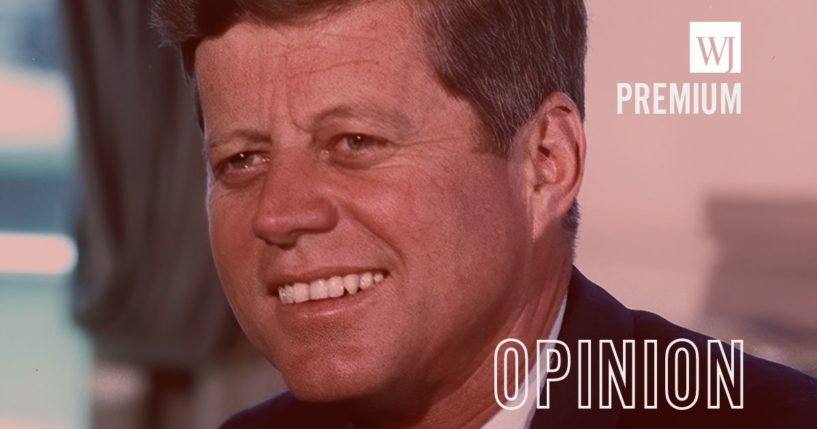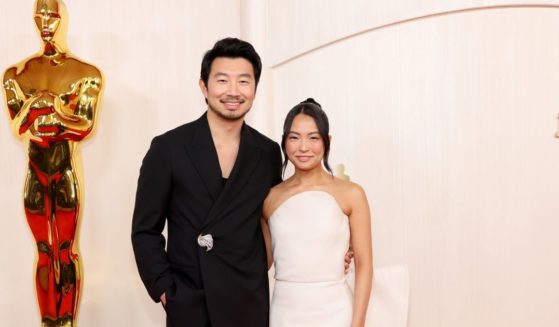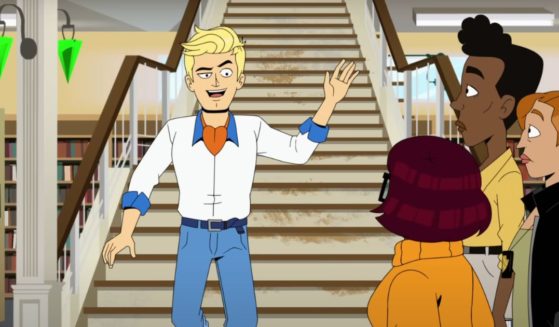
What if Kennedy Had Served a 2nd Term? 60th Anniversary of JFK's Assassination
One of the most haunting questions of 20th-century American history is, what if President John F. Kennedy had lived?
What if the assassin’s bullet had gone wide or inflicted only non-life-threatening wounds?
How would the rest of the 1960s — or, for that matter, the rest of the century — be different?
Wednesday marks the 60th anniversary of Kennedy’s assassination in Dallas on Nov. 22, 1963.
It happened at a time when American power was at a post-World War II zenith, and what followed until Ronald Reagan became president in the 1980s were rocky times for the world’s beacon of freedom.
Think of what defined the failed presidencies after JFK: Lyndon Johnson, Vietnam War; Richard Nixon, Watergate; Gerald Ford, a placeholder who lost in 1976; and Jimmy Carter, stagflation and the Iran hostage crisis.
Kennedy enjoyed the trust of the American people, with a 70 percent approval rating while in office, the highest of any post-World War II president, including Dwight Eisenhower at 65 percent.
He overcame the failure of the Bay of Pigs invasion by successfully navigating the country through the Cuban missile crisis. He was also on the right side of history regarding civil rights.
Following his tragic death, interest in the 35th president and his brief, shining “Camelot” administration remained strong.
November 22 marks the 60th anniversary of President John F. Kennedy’s assassination. AP photographer James “Ike” Altgens was near the president, and relayed the news to Dallas bureau chief Bob Johnson, who filed the first AP news bulletin on the shooting. https://t.co/DE2FEzbBHb pic.twitter.com/9I7Kf1pKKx
— AP Images (@AP_Images) November 18, 2023
The Kennedy administration was very much in the American psyche in the 1980s.
Actor Martin Sheen played JFK in a very popular NBC miniseries titled “Kennedy” in November 1983 that marked the 20th anniversary of his assassination.
Reagan quoted Kennedy often while seeking to pass historic tax cuts and on other occasions.
Many of the principal players of the Kennedy era were still among us at the time, including former first lady Jacqueline Kennedy; their two children, Caroline and John Jr.; JFK’s brother Ted Kennedy; and various members of Camelot’s round table, including aides Ted Sorensen, Arthur Schlesinger Jr. and Larry O’Brien, former Secretary of Defense Robert McNamara, former Chairman of the Joint Chiefs of Staff Gen. Maxwell Taylor, and press secretary Pierre Salinger.
Of these, only Caroline remains.
Looking back at the assassination, perhaps the biggest “what if Kennedy had lived” question is whether he would have pulled the U.S. out of the Vietnam War. It would have meant saving more than 58,000 American lives lost in battle and spared the country of much domestic strife and disillusionment with the federal government over its prosecution of the war.
When Kennedy died, there were about 16,000 military advisers and other support personnel in South Vietnam.
In October 1963, JFK made up his mind to withdraw 1,000 advisers by the end of that year, and the reduction did happen. But it became like an accounting exercise when more troops quickly flowed back into Vietnam in the months that followed.
Kennedy’s successor, Lyndon Johnson, oversaw a massive buildup that reached more than 536,000 U.S. troops in country by 1968.
I was able to interview former Kennedy administration Defense Department official William Bundy in the late 1980s for a paper I was writing as a West Point cadet. I asked whether JFK would have pulled out of Vietnam in a second term.
After speaking with Bundy — who served as deputy assistant secretary of defense for international security affairs under JFK and assistant secretary of state for East Asian affairs under Johnson — and conducting further research in the Pentagon Papers and other sources, I concluded that Kennedy’s withdrawal of U.S. troops from Vietnam was going to be contingent on continued success in the war effort by the South Vietnamese.
Would he have gotten the U.S. as deeply involved as Johnson did? It seems unlikely given his skepticism toward the military brass, but it’s not out of the question.
In a September 1963 interview with CBS News anchor Walter Cronkite, Kennedy said, “In the final analysis, it’s their war. They are the ones who have to win it or lose it. We can help them, we can give them equipment, we can send our men out there as advisers, but they have to win it, the people of Vietnam, against the Communists. We’re prepared to continue to assist them.”
He added, “But these people who say that we ought to withdraw from Vietnam are wholly wrong, because if we withdrew from Vietnam, the communists would control Vietnam. Pretty soon, Thailand, Cambodia, Laos, Malaya would go and all of southeast Asia would be under the control of the communists and under the domination of the Chinese.”
So the president articulated the “Domino Theory” of the time: If one country goes, they all will go.
But Kennedy emphasized again, “They’re the ones who have to win this war or they are the ones who will lose it. We can’t do either. We can assist them to win it.”
Former Robert F. Kennedy speechwriter Jeff Greenfield, in his 2013 book “If Kennedy Lived,” noted the 35th president had too “finely honed political instincts” to get out of Vietnam before the 1964 election, even if he wanted to.
JFK knew Republicans would accuse him of losing Vietnam to the Communists, just as they accused former President Harry Truman of the same with China in 1949.
During the Cronkite interview, Kennedy discussed other priorities of a second term.
They included expanding civil rights and getting the nation’s economy to grow strongly again.
Black people “are given the promises of the Constitution, and we have to do what we can to see that those promises are carried out,” Kennedy said. “That’s the responsibility, it seems to me, of this generation of Americans, North and South, East and West, even though it presents us with a good many harassments.”
In the summer of 1963, he proposed civil rights legislation “that would address voting rights, public accommodations, school desegregation, nondiscrimination in federally assisted programs and more,” according to the National Archives.
In July 1964, Johnson signed the Civil Rights Act into law, followed by the Voting Rights Act in 1965.
Kennedy identified that another top issue for the 1964 election would be the “vigor of the American economy,” and he had proposed across-the-board tax cuts for individuals and corporations to get it moving again.
“The billions of dollars this bill will place in the hands of the consumer and our businessmen will have both immediate and permanent benefits to our economy,” JFK said in August 1962 when promoting the plan.
“Every dollar released from taxation that is spent or invested will help create a new job and a new salary,” Kennedy continued. “And these new jobs and new salaries can create other jobs and other salaries and more customers and more growth for an expanding American economy.”
“Our goal must be full capacity and full employment and the budgetary surpluses that that kind of employment and capacity can produce,” he said.
Kennedy’s prediction about the efficacy of tax cuts proved true. After his plan was adopted in 1964, tax revenues to the federal Treasury increased by over 60 percent by the end of the decade, unemployment fell to under 5 percent and the nation enjoyed a budget surplus by the end of the 1960s.
Of course, JFK also famously set a goal of putting a man on the moon by the end of the 1960s, which was achieved in July 1969.
The NASA space center in Florida was named in his honor.
A challenge for Kennedy’s second term would have continued to be confronting the Soviet Union. He had successfully concluded a nuclear test ban treaty in August 1963 barring atmospheric and underwater tests.
Overall, some of Kennedy’s big-ticket items — including civil rights legislation, tax reform and space exploration — did go forward after his death.
What the country missed was having him in the White House for potentially five more years. There would have been new initiatives, new goals to achieve and, of course, that Kennedy style.
Historians still rank him among the top 10 to have ever served as commander in chief though he held the office for only about 1,000 days.
Great presidents do not come along very often, but Kennedy was one of them.
Truth and Accuracy
We are committed to truth and accuracy in all of our journalism. Read our editorial standards.












